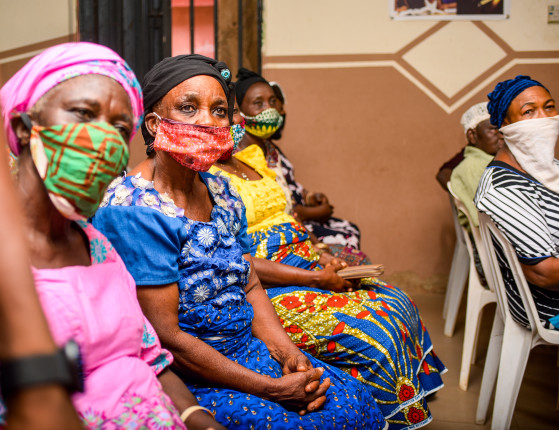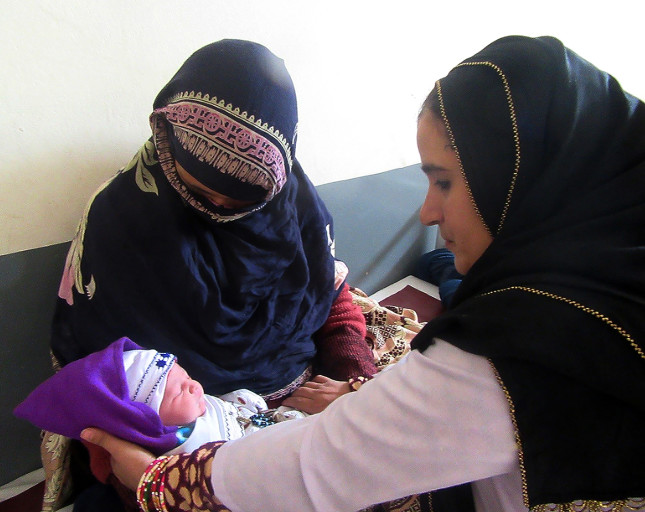-
Chaos Continues: The Impact of the Revocation of the Global Gag Rule
›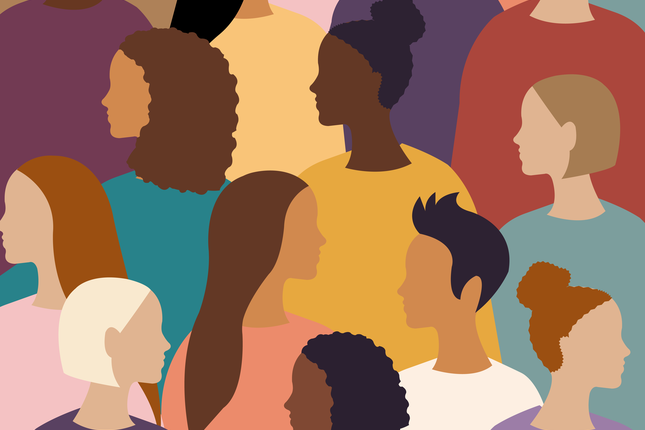
Many researchers have documented the impact of the Global Gag Rule (GGR) around the world—and what happens when the policy is in place. “But we don’t know enough about what happens when the policy is revoked,” said Bergen Cooper, Director of Policy Research at Fòs Feminista at the launch of the organization’s new report, Chaos Continues: The 2021 Revocation of the Global Gag Rule and The Need for Permanent Repeal.
-
U.S. Backing for the UN Resolution for Healthy Environment Would be a Game Changer
› In 1972, environmental activists, government leaders, and industry experts met in Stockholm, Sweden, for the United Nations Conference on the Human Environment (Stockholm Conference) to plot out a new direction for international environmental governance. Over the ensuing 50 years, countries negotiated successful agreements to shrink the ozone hole and expanded protections for wildlife and ecosystems.
In 1972, environmental activists, government leaders, and industry experts met in Stockholm, Sweden, for the United Nations Conference on the Human Environment (Stockholm Conference) to plot out a new direction for international environmental governance. Over the ensuing 50 years, countries negotiated successful agreements to shrink the ozone hole and expanded protections for wildlife and ecosystems. -
Two-Spirit People Reclaim Their Place as Water Protectors
›
It was time to take a stand. That’s the conclusion Sharon Day, an Ojibwe and Two-Spirit elder, came to after hearing that the Minnesota Department of Transportation intended to transform Hiawatha Avenue into Highway 55, linking the Minneapolis-St. Paul International Airport with downtown Minneapolis. The proposed expansion, Day worried, could pollute Coldwater Spring, a natural spring that both Dakota and Ojibwe people consider sacred and of immense cultural significance.
-
Pay More Attention to the United Nations Universal Periodic Review
›
“To attack the most vulnerable—babies, children, pregnant women, and those already suffering from illness and disease, and health workers risking their own lives to save lives—is an act of unconscionable cruelty,” says a Joint Statement from UNICEF, UNFPA, and WHO in response to the ongoing war in Ukraine. To monitor human rights abuses such as this and improve human rights conditions around the world, the United Nations (UN) General Assembly established the Universal Periodic Review (UPR) in 2006. The UPR produces purposeful engagement by all 193 UN member states participating in the periodic reviews. Despite the UPR’s potential to advance human rights—and by extension improve human security—this novel human rights mechanism receives little attention among scholars and policymakers. This lack of interest in the UPR needs to change. More research could shed light on its role in improving human rights outcomes in conflict-free countries as well as in countries experiencing conflict like in Ukraine, Syria, and Ethiopia.
-
#DontMuteDC: Go-Go and Social Justice in the District of Columbia
›
In April 2022, as Washington awoke from its COVID slumber, The Kennedy Center turned to long-time community activist Ron Moten to organize a tribute to the city’s endemic sound, Go-Go. Moten has fought numerous battles against gentrification, displacement, and for social justice. He learned over the years that the loss of distinctive cultures stands at the heart of the dislocations occurring in cities across the nation. This embrace led to the establishment three years ago of a particularly potent urban social action group, #DontMuteDC. That movement’s story offers several important lessons about the power of the arts to mobilize support for social change.
-
Making Room at the Table for Businesswomen in Jordan: A Conversation with Reem Badran
› “People told me it was only for men,” says Reem Badran, Founder & CEO of Al Hurra for Management and Business Development and former member of the Jordanian House of Representatives, when speaking about her decision to run for the Amman Chamber of Commerce in the latest episode of the Riyada podcast from the Wilson Center’s Middle East Program. Badran is a Jordanian trailblazer and was recently named One of the World’s Most Successful Women in Business by the International Women’s Entrepreneurial Challenge Foundation in New York. In 2009, she became the first woman elected to the board of Amman’s Chamber of Commerce since its establishment in 1923. To this day, she remains the only woman to be elected to this post. “In our community [and] region, it is not easy for women to be able to penetrate the business community. It takes a while for people to believe in a woman and that she can have a successful business.”
“People told me it was only for men,” says Reem Badran, Founder & CEO of Al Hurra for Management and Business Development and former member of the Jordanian House of Representatives, when speaking about her decision to run for the Amman Chamber of Commerce in the latest episode of the Riyada podcast from the Wilson Center’s Middle East Program. Badran is a Jordanian trailblazer and was recently named One of the World’s Most Successful Women in Business by the International Women’s Entrepreneurial Challenge Foundation in New York. In 2009, she became the first woman elected to the board of Amman’s Chamber of Commerce since its establishment in 1923. To this day, she remains the only woman to be elected to this post. “In our community [and] region, it is not easy for women to be able to penetrate the business community. It takes a while for people to believe in a woman and that she can have a successful business.” -
It’s Not Ok: How Data from Nigeria Reveals the Role of Addressing Community Attitudes to End Violence Against Women
› -
Raising Momentum for Integrating Respectful Maternity Care in Humanitarian Settings
›
Greater than one third of all women experience mistreatment during facility-based childbirth. Mistreatment, particularly in humanitarian settings, may include verbal or physical abuse, poor patient-provider rapport, a lack of information about maternal and newborn health (MNH) services for both pregnant women and providers, lack of privacy within facilities, challenges with receiving informed consent from women for medical procedures due to language and cultural barriers, and denied or delayed care. Such mistreatment can stem from historical tensions between populations seeking care and health workers (both foreign and local) as well as systemic mistreatment of providers who are burned out and possibly carry their own biases. Evidence shows that some women delay seeking care, or avoid care entirely because of social fears stemming from negative stigma or negative perceptions of their situation.
Showing posts from category human rights.


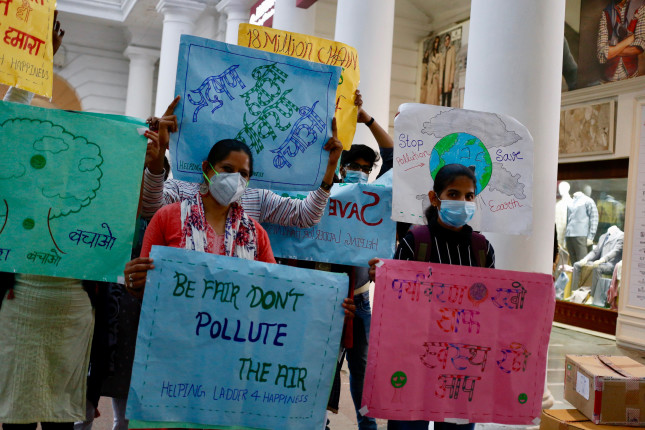 In 1972, environmental activists, government leaders, and industry experts met in Stockholm, Sweden, for the United Nations Conference on the Human Environment (Stockholm Conference) to plot out a new direction for international environmental governance. Over the ensuing 50 years, countries negotiated successful agreements to shrink the ozone hole and expanded protections for wildlife and ecosystems.
In 1972, environmental activists, government leaders, and industry experts met in Stockholm, Sweden, for the United Nations Conference on the Human Environment (Stockholm Conference) to plot out a new direction for international environmental governance. Over the ensuing 50 years, countries negotiated successful agreements to shrink the ozone hole and expanded protections for wildlife and ecosystems.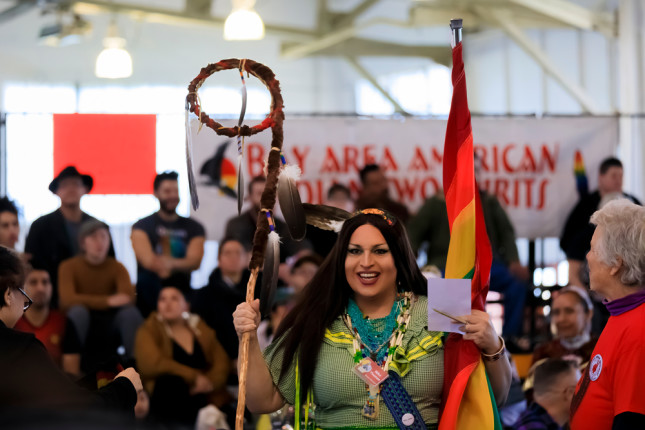
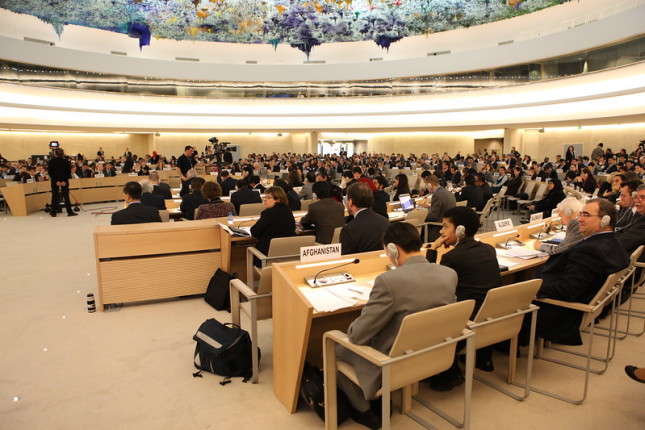
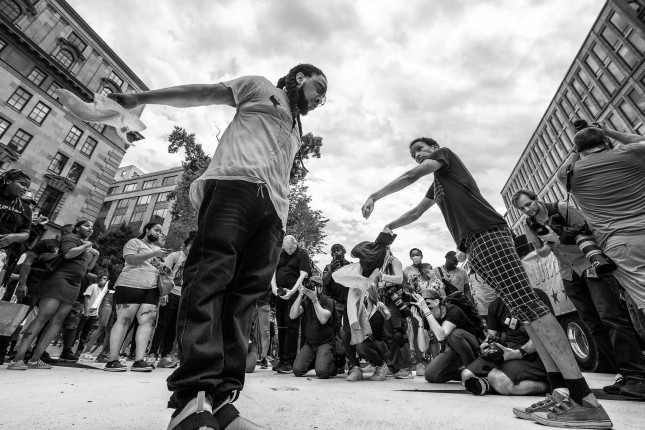
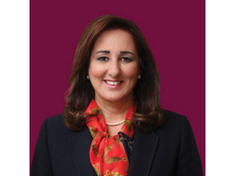 “People told me it was only for men,” says Reem Badran, Founder & CEO of Al Hurra for Management and Business Development and former member of the Jordanian House of Representatives, when speaking about her decision to run for the Amman Chamber of Commerce in the
“People told me it was only for men,” says Reem Badran, Founder & CEO of Al Hurra for Management and Business Development and former member of the Jordanian House of Representatives, when speaking about her decision to run for the Amman Chamber of Commerce in the 